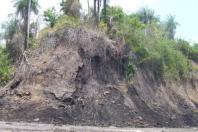Utah Supreme Court hears challenge to tar sands permit
By Brian Maffly
| The Salt Lake Tribune
Mar 04 2014
The Utah Supreme Court is deciding whether the state’s first oil-producing tar sands mine was appropriately permitted by state regulators.
The court challenge is the last hurdle for the U.S. Oil Sands project, which could begin this spring if the permit is upheld.
Environmentalists say the Division of Water Quality incorrectly concluded there is no groundwater near the 213-acre project area on state trust lands in the Book Cliffs. U.S. Oil Sands intends to strip mine to a depth of 150 feet.
But during arguments Tuesday, Justice Thomas R. Lee questioned whether the court should second-guess decisions made by an agency expert in analyzing industrial impacts to groundwater.
‘’How we are supposed to know where to draw the line? Shouldn’t we defer to their judgment?" Lee asked.
Administrative law judge Sandra Allen endorsed the division’s findings and approval in 2012, setting up the show down in the state’s highest court. The no-groundwater finding was key to the state’s approval of the mine.
The company hopes the mine will yield up to 2,000 barrels of oil, extracted through a process that uses a citrus-based solvent to separate bitumen from rock. Bitumen is a viscous hydrocarbon that can be refined into liquid oil.
Up to 9 million tons of mining waste contaminated with hydrocarbons — further exposed by the solvents — will be deposited in two piles totalling 70 acres and into the 62-acre mine pit.
Lawyers for Living Rivers contend groundwater from precipitation has accumulated near the surface, and that the seeps and springs it feeds could be imperiled by the project.
The nearest groundwater is the Mesa Verde aquifer, 1,500 feet below the surface, countered Utah Solicitor General Bridget Romano. The intervening shale and mudstone formations are an impermeable barrier to anything seeping from the mine operations, she said.
"There is no groundwater," she said. "Even if there were, there is no showing of anything greater than a de minimis impact," too trivial to be of concern.
http://www.sltrib.com/sltrib/politics/57631328-90/groundwater-mine-court-oil.html.csp


